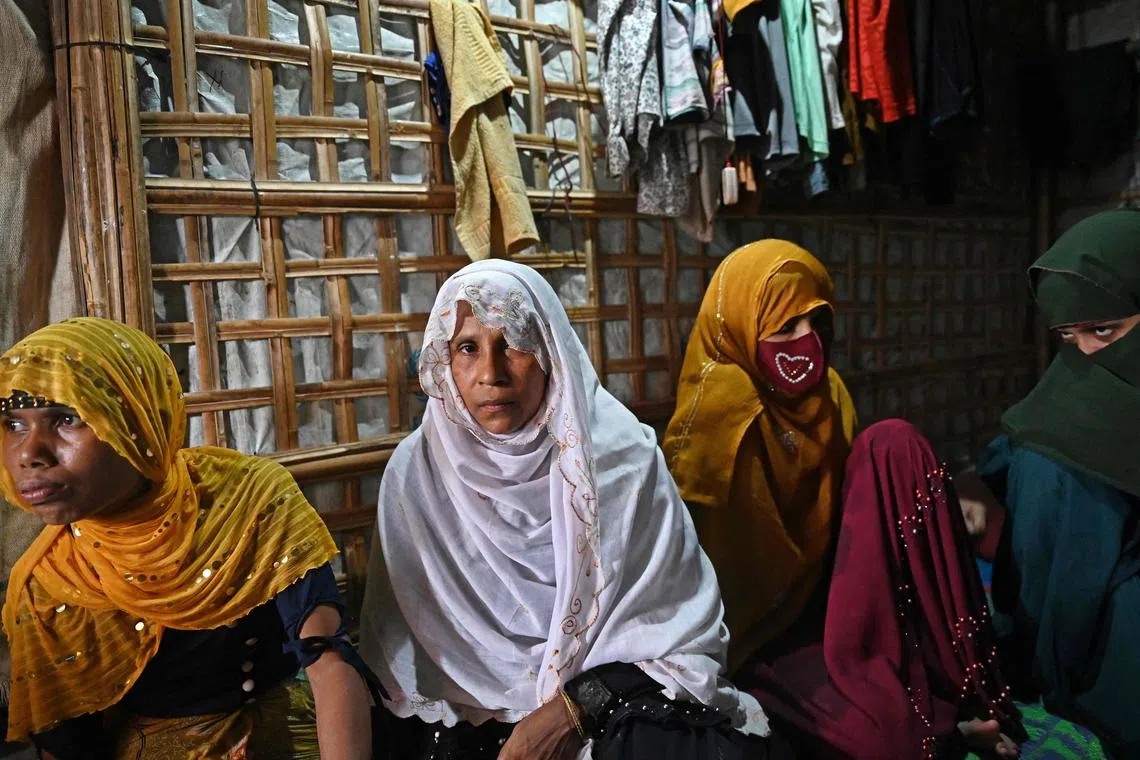Myanmar’s war-torn Rakhine faces famine with 2 million people at risk, UN says
Sign up now: Get insights on Asia's fast-moving developments

Ms Dildar Begum, a Rohingya, was forced to leave her home in Myanmar's Rakhine state in September.
PHOTO: AFP
NEW YORK – Myanmar’s war-ravaged Rakhine state could face imminent famine, according to a United Nations report, which estimates that more than two million people could be at the risk of starvation.
Rice production in Rakhine, a western state that borders Bangladesh, has declined due to shortages of seeds and fertilisers, severe weather and the displacement of people who can no longer farm, according to the United Nations Development Programme (UNDP).
Aid agencies, including the Red Cross, have faced severe difficulties in assessing humanitarian needs and delivering aid due to restrictions from Myanmar’s military government.
“Rakhine stands on the precipice of an unprecedented disaster,” the UNDP said in a report late on Nov 7.
“Combined with the near-total halt of trade, over two million people are at risk of starvation.”
The number of internally displaced people in Rakhine has risen by more than 60 per cent from October 2023 to August 2024, with more than 500,000 now relying entirely on aid, the UNDP said.
Myanmar has been in turmoil since the military ousted the elected government
With more than three million people displaced and much of the country in chaos, humanitarian aid has become critical in Myanmar.
Violence has been on the rise since conflict reignited in Rakhine last November, following the collapse of a ceasefire
Though the military has for years been accused of persecuting the Muslim minority Rohingya community in Rakhine, the AA has also been accused of targeting them, which it has denied.
The fighting has triggered a new wave of Rohingya refugees fleeing into Bangladesh, where more than a million Rohingya live in huge refugee camps.
“Without urgent action, 95 per cent of the population will regress into survival mode,” the UNDP report said. REUTERS


